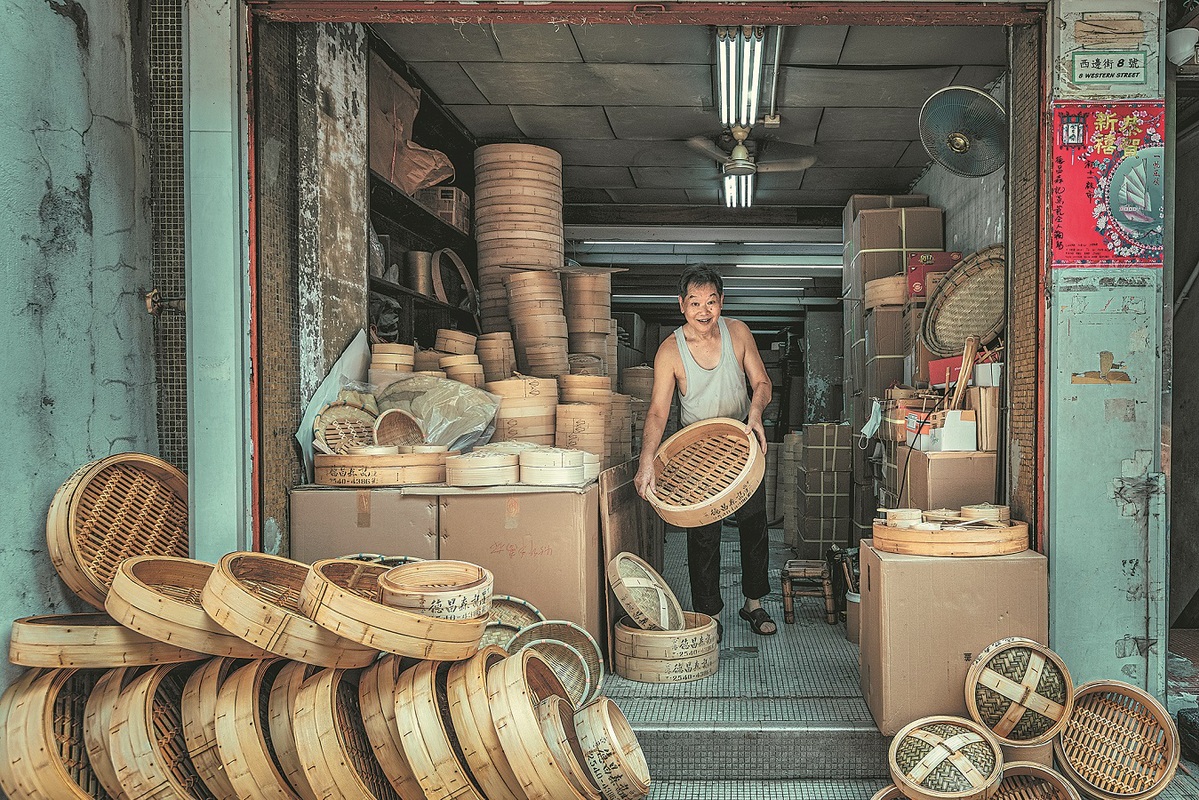

For well over a decade, photographer Tsui Piu has devoted untold hours every day to capturing images of Hong Kong's disappearing old shops.
The disparate collection of cultural snapshots includes a shop selling snake products that was over a century old, whose eccentric female owner hung serpents around her neck. Tsui has also taken photos of the city's last movable-type printing company and a glass-blower for neon signs.
Over the past 14 years, he has documented more than 1,000 old shops, including small businesses and manufacturing operations, for an online library that serves as a witnesses to Hong Kong's history.
Born on the Chinese mainland, Tsui moved to the bustling metropolis at a young age and has lived there for over three decades.
"These shops have been witnesses to my growth and are keepers of my cherished memories like eating, playing and shopping," he said.
When Tsui saw that some of these businesses were closing, "it felt as if the city was disconnecting from its past and its history was fading away".
Although he couldn't save the old shops, he decided to try and preserve the culture they embodied through his photography.
Since 2010, Tsui has taken tens of thousands of footsteps every day, exploring the city to discover and document the old shops. Convincing shop owners to let him take their photograph was not easy, but most finally said yes after seeing his passion for the project. Sometimes, he would revisit a shop with unique craftsmanship multiple times, spending months documenting the entire production process.
To take photos empathetic to his subjects, Tsui talked at length with the shop owners about the beginnings and histories of their businesses.
In an old umbrella shop, he discovered that the renowned martial arts master, Wong Fei-hung, had once wielded one of its products. In a curd shop that had been in one family for four generations, he learned that the undistinguished owner hankered for the life of a musician. During the day the shop owner wore a white T-shirt and dished up curd, but at night he donned a tuxedo to play the flute on stage.
Tsui found a workshop where mahjong sets were made by hand and an owner who refused to succumb to the tide of mass manufacturing, carving the tiles until his fingers swelled.
"He told me he wouldn't give up his business," Tsui said.
"Through conversations at these old shops, I came to realize it is not easy for them to resist the passage of time," he said, adding that the situation is getting worse.
To promote the culture of the old shops, Tsui has published two photo collections and has an online account featuring his photographs and magazine stories about the owners.
"Sometimes I feel like I am racing against time, but I have to. Old shops are part of Hong Kong's cultural identity and should be preserved," he said.